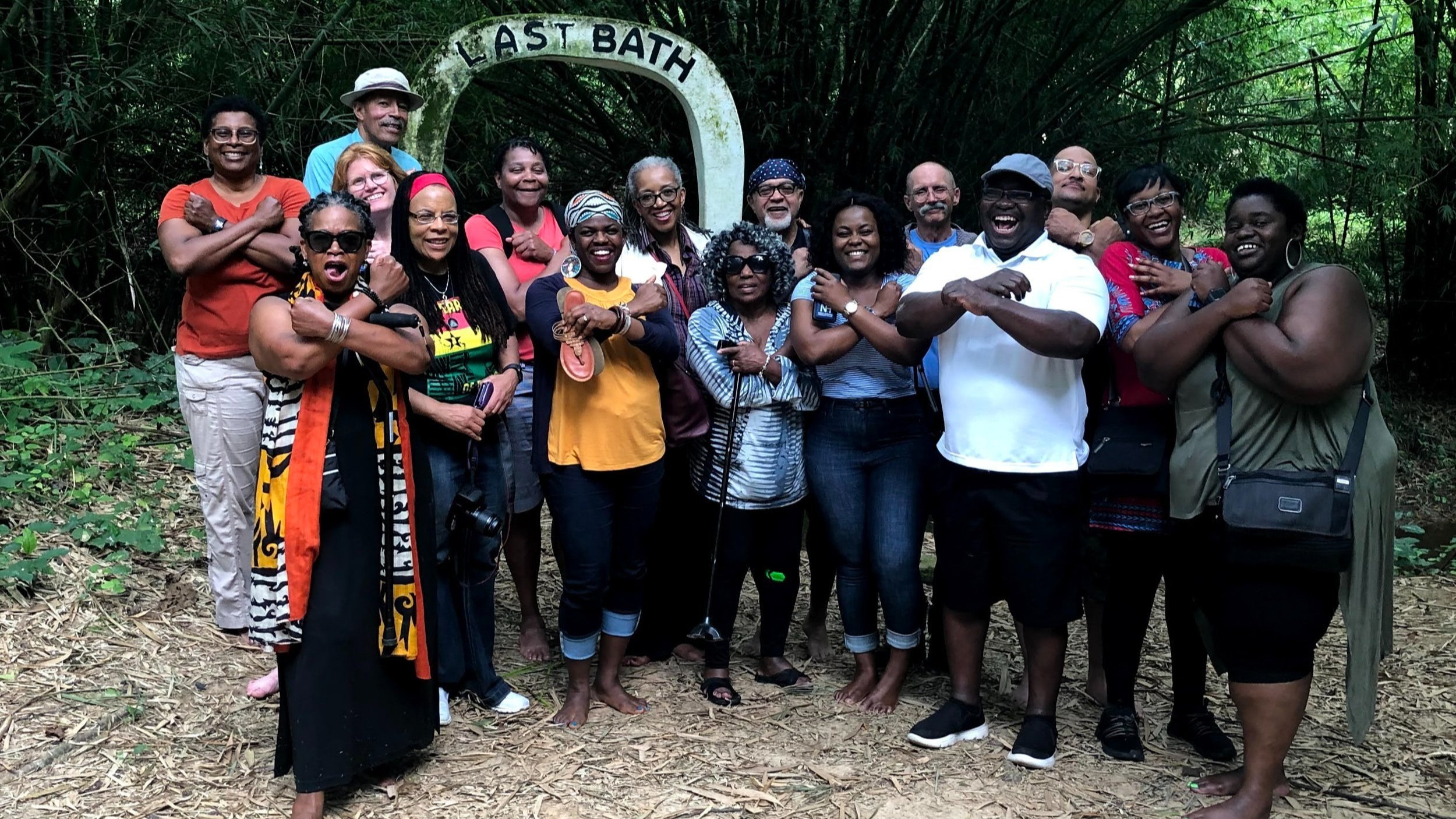2019 Year of Return Pilgrimmage
"No one knows when the hour of Africa's redemption cometh. It is in the wind. One day like a storm it will be here. When that day comes, all Africa will stand together."
- Marcus Garvey
Welcome (Akwaaba)
Returning to Africa is a Sankofa moment.
Sankofa reflects the philosophy of “go back and fetch it.” It also means “we must return to the source.”
The 2019 Year of Return was a reminder that returning home helps us to find our roots, appreciate who we are and celebrate our shared humanity.
"I am not African because I was born in Africa but because Africa was born in me."
- Dr. Kwame Nkrumah
2019 marked the 400-year anniversary of the first enslaved Africans’ arrival in the United States in 1619.
Ghana President Akufo-Addo declared a clarion call to take action by declaring 2019 “The Year of Return”.
This echoed the sentiments of Kwame Nkrumah, the prime minister and first President, who challenged African Americans to return to Ghana and invest in its infrastructure back in 1957.
Leadership
The W.E.B. Dubois Center is named after the scholar and "Father of Pan-Africanism" who wrote the Encyclopedia Africana promoting "One Africa."
It contains books and information which inspired his leadership work and speaks to his belief that “It is today that our best work can be done and not some future day or future year.”
“Leadership to me is being able to empower my community to both understand and take ownership of my vision for our collective future."
-Odeneho Kwafo Akoto III
Leadership is reflected not only on the walls and museums but within the lives of the ancestors who endured incredible hardships.
Returning often provides time to process, honor and commit to the bravery and strength of our heritage.
This type of leadership is not about hype but about what can not always be seen with the natural eye and laying out a pathway for children to follow.
Justice
The last bath, a sobering ritual, took place in the Assin Manso River where Africans endured the pain of being brutalized and scrubbed with bamboo prior to entering the slave castles.
Afterward, they walked 40 miles from the river to the slave castles while shackled and chained.
The great tenacity, courage and perseverance required was humbling.
“At the core of our humanity is the recognition that each of us is deserving of justice no matter our personal circumstances.”
-Odeneho Kwafo Akoto III
The Akwamu kingdom was able to take over one of the slave castles and became known as "the conquerors of all conquerors."
This serves as a role model of active resistance to oppression.
Black Ecosystem
Africa has the highest proportions of entrepreneurs and growth rates in the world.
Creativity and the ability to see opportunity in challenges are a vital part of the black ecosystem.
“It is my belief that much of the challenges, with poverty, unemployment, crime and general despondency will be markedly reduced if we achieve a well organised, effective and sustainable black eco-system.”
-Odeneho Kwafo Akoto III
The black ecosystem preserves the history, culture, and arts of the African people.
There is a focus on quality goods and services to encourage support within the ecosystem for the ecosystem.
For example, in Akwamu 100 acres were set aside to produce medicines by black people for black people.
Thank you (Meda wo ase)
Those African Americans who returned to Ghana in 2019 not only experienced their lost heritage and identity but felt like they returned home.
“Visiting Ghana is an important bridge between the past, present and future.” - Dr. Artika Tyner
"To study history is to study humanity. And to try to foretell the future without studying history is like trying to learn to read without bothering to learn the alphabet"
- Octavia Butler
Mate Masie which translates to “what I hear, I keep” and speaks to the value of oral history as it relates to the African culture, challenges each of us to gain wisdom, knowledge, and prudence through the exploration of history.
















